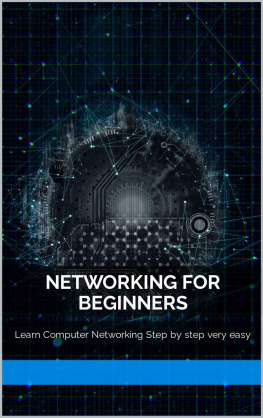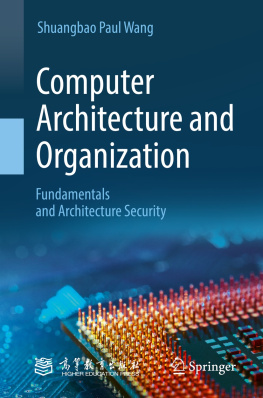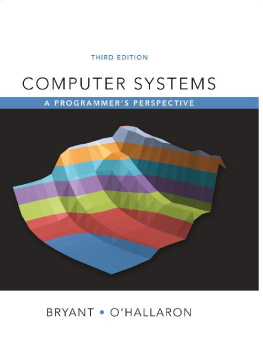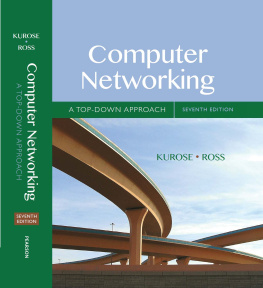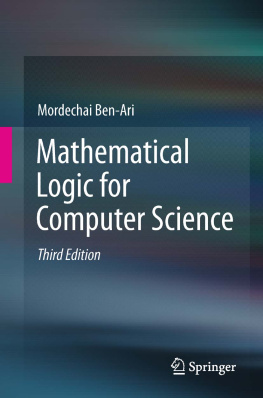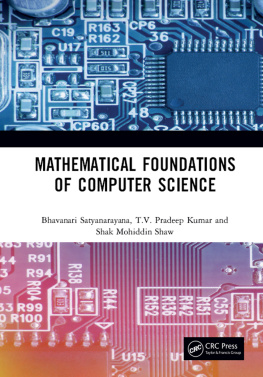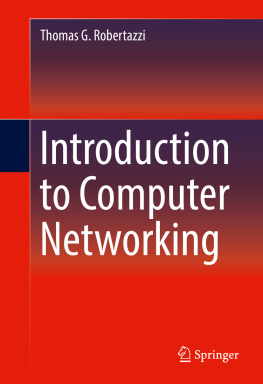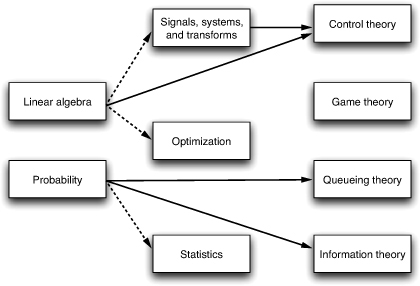Srinivasan Keshav - Mathematical Foundations of Computer Networking
Here you can read online Srinivasan Keshav - Mathematical Foundations of Computer Networking full text of the book (entire story) in english for free. Download pdf and epub, get meaning, cover and reviews about this ebook. year: 2012, publisher: Addison-Wesley Professional, genre: Computer. Description of the work, (preface) as well as reviews are available. Best literature library LitArk.com created for fans of good reading and offers a wide selection of genres:
Romance novel
Science fiction
Adventure
Detective
Science
History
Home and family
Prose
Art
Politics
Computer
Non-fiction
Religion
Business
Children
Humor
Choose a favorite category and find really read worthwhile books. Enjoy immersion in the world of imagination, feel the emotions of the characters or learn something new for yourself, make an fascinating discovery.

- Book:Mathematical Foundations of Computer Networking
- Author:
- Publisher:Addison-Wesley Professional
- Genre:
- Year:2012
- Rating:3 / 5
- Favourites:Add to favourites
- Your mark:
Mathematical Foundations of Computer Networking: summary, description and annotation
We offer to read an annotation, description, summary or preface (depends on what the author of the book "Mathematical Foundations of Computer Networking" wrote himself). If you haven't found the necessary information about the book — write in the comments, we will try to find it.
To design future networks that are worthy of societys trust, we must put the discipline of computer networking on a much stronger foundation. This book rises above the considerable minutiae of todays networking technologies to emphasize the long-standing mathematical underpinnings of the field.
Professor Jennifer Rexford, Department of Computer Science, Princeton University
This book is exactly the one I have been waiting for the last couple of years. Recently, I decided most students were already very familiar with the way the net works but were not being taught the fundamentalsthe math. This book contains the knowledge for people who will create and understand future communications systems.
Professor Jon Crowcroft, The Computer Laboratory, University of Cambridge
The Essential Mathematical Principles Required to Design, Implement, or Evaluate Advanced Computer Networks
Students, researchers, and professionals in computer networking require a firm conceptual understanding of its foundations. Mathematical Foundations of Computer Networking provides an intuitive yet rigorous introduction to these essential mathematical principles and techniques.
Assuming a basic grasp of calculus, this book offers sufficient detail to serve as the only reference many readers will need. Each concept is described in four ways: intuitively; using appropriate mathematical notation; with a numerical example carefully chosen for its relevance to networking; and with a numerical exercise for the reader.
The first part of the text presents basic concepts, and the second part introduces four theories in a progression that has been designed to gradually deepen readers understanding. Within each part, chapters are as self-contained as possible.
The first part covers probability; statistics; linear algebra; optimization; and signals, systems, and transforms. Topics range from Bayesian networks to hypothesis testing, and eigenvalue computation to Fourier transforms.
These preliminary chapters establish a basis for the four theories covered in the second part of the book: queueing theory, game theory, control theory, and information theory. The second part also demonstrates how mathematical concepts can be applied to issues such as contention for limited resources, and the optimization of network responsiveness, stability, and throughput.
Srinivasan Keshav: author's other books
Who wrote Mathematical Foundations of Computer Networking? Find out the surname, the name of the author of the book and a list of all author's works by series.

